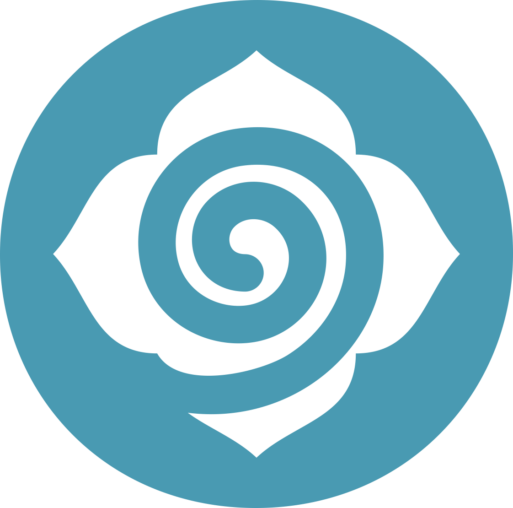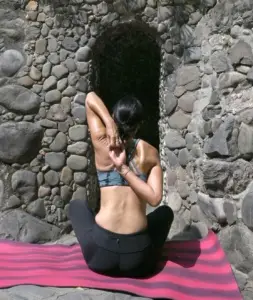
The GoInwards Cancer Survivorship Program addresses the significant health challenges faced by individuals recovering from cancer, including fatigue, pain, and emotional distress, often resulting from the disease and its treatments. This integrated program combines yoga, breathwork, meditation, and mindfulness to holistically manage both the physical symptoms and psychological impacts of cancer recovery. Led by experienced instructors, the program aims to rebuild strength, enhance flexibility, reduce pain, and improve overall well-being through evidence-based therapeutic practices. By promoting community support and continuous evaluation, the program strives to empower participants in achieving long-term health improvements, fostering resilience, and reducing dependency on traditional medical interventions.
Statement of Need
Cancer treatment often leaves survivors with a range of long-lasting physical, emotional, and psychological challenges. The journey through diagnosis, treatment, and recovery can be incredibly taxing, not only on the body but also on the mind and spirit. Here are the key reasons highlighting the need for a structured yoga program for cancer survivors:
Physical Challenges
Emotional and Psychological Challenges
Social and Lifestyle Challenges
Gaps in Conventional Rehabilitation
Theory of Change Logic Model
Goal: To improve the quality of life for cancer survivors through a structured yoga program that addresses physical, emotional, and mental health.
Inputs
Activities
Outputs
Short-Term Outcomes
Long-Term Outcomes
The Theory of Change Logic Model demonstrates the structured approach to improving the quality of life for cancer survivors through a yoga program. By leveraging trained instructors, partnerships, funding, and proper facilities, the program delivers targeted activities that result in measurable outputs. These outputs translate into short-term improvements in physical and emotional health, ultimately leading to long-term benefits such as sustained health, emotional resilience, and an improved overall quality of life.
Program Overview
The proposed yoga program for cancer recovery aims to support survivors in their journey toward holistic healing by addressing physical, emotional, and mental health needs. The program will provide a structured, supportive environment where participants can engage in tailored yoga practices, mindfulness, and other complementary therapies.
Program Components
Implementation Plan
Program Management
Partnership Table
| Partner Organization | Role | Benefits to Program |
| Local Hospitals | Refer patients, provide medical insights | Access to patient base, credibility |
| Cancer Support Groups | Offer emotional support and resources | Enhanced participant support network |
| Wellness Centers | Provide facilities and additional resources | Access to facilities and complementary services |
| Nutritionists | Offer dietary guidance | Holistic support for participants |
| Mental Health Professionals | Provide counseling and support | Address emotional and psychological needs |
Holistic approach to recovery
Yoga, with its holistic approach, offers a comprehensive solution to various needs by incorporating gentle physical exercises, breathwork, meditation, and mindfulness. It enhances physical recovery through improved flexibility, strength, and balance; supports emotional healing by reducing stress, improving mood, and managing anxiety; promotes mental clarity by fostering mindfulness and relaxation, aiding in coping with fear and anxiety; and facilitates social connections, as group classes provide a sense of community and reduce isolation.
Given the complex challenges faced by cancer survivors, an integrative approach to rehabilitation is essential. A structured yoga program can meet this need, offering tailored support that enhances physical, emotional, and mental well-being. By combining these elements, the program provides comprehensive support to address the diverse needs of cancer survivors, helping them achieve better health and improve their quality of life.
Sample Lesson Plan
Here’s a comprehensive table summarizing the physical, emotional, mental, and medical benefits of the yoga postures, breathing techniques, and meditation practices for cancer survivors, along with the muscles, organs, and systems they engage:
| Practice | Physical Benefits | Emotional Benefits | Mental Benefits | Medical Benefits | Muscles Engaged | Organs/Systems Engaged |
| Cat-Cow Pose (Marjaryasana-Bitilasana) | Enhances spinal flexibility, warms up back and abdomen | Reduces stress and promotes relaxation | Increases mindfulness and body awareness | Improves spinal health and posture | Erector spinae, abdominal muscles | Spine, digestive organs, nervous system |
| Seated Side Stretch | Stretches the sides of the body, improves flexibility | Alleviates tension, promotes relaxation | Increases mental relaxation and focus | Enhances flexibility in the torso | Obliques, latissimus dorsi | Lungs, ribcage, intercostal muscles |
| Warrior I (Virabhadrasana I) | Builds strength in legs, improves balance | Boosts confidence and empowerment | Enhances concentration and mental resilience | Strengthens lower body, supports joint stability | Quadriceps, hamstrings, glutes, calves, shoulders | Respiratory system, circulatory system |
| Tree Pose (Vrksasana) | Improves balance, strengthens legs | Enhances feelings of stability and self-assurance | Promotes mental focus and concentration | Supports joint stability, improves proprioception | Quadriceps, hamstrings, glutes, core muscles | Nervous system, circulatory system |
| Modified Downward Dog (Adho Mukha Svanasana) | Stretches back, hamstrings, and calves | Reduces stress, promotes relaxation | Improves mental clarity and focus | Alleviates tension in the back and legs | Hamstrings, calves, shoulders, back muscles | Digestive system, endocrine system |
| Supported Child’s Pose (Balasana) | Provides deep relaxation, stretches back | Reduces anxiety and promotes emotional calm | Encourages mindfulness and inner peace | Supports the nervous system, alleviates fatigue | Back muscles, shoulders, hips | Nervous system, digestive organs |
| Legs Up the Wall (Viparita Karani) | Reduces swelling in legs, promotes relaxation | Calms the mind, alleviates stress | Enhances mental relaxation and recovery | Improves circulation, reduces leg fatigue | Hamstrings, calves, lower back | Circulatory system, lymphatic system |
| Diaphragmatic Breathing | Enhances relaxation, improves oxygenation | Reduces stress and promotes a sense of calm | Improves mental focus and clarity | Supports respiratory health, lowers blood pressure | Diaphragm, intercostal muscles | Respiratory system, nervous system |
| Alternate Nostril Breathing | Balances energy, reduces stress | Promotes emotional equilibrium and calmness | Enhances mental clarity and focus | Balances autonomic nervous system, reduces anxiety | Diaphragm, intercostal muscles | Respiratory system, nervous system |
| Body Scan Meditation | Promotes relaxation and body awareness | Reduces stress and emotional tension | Improves mindfulness and self-awareness | Supports overall mental health | Entire body | Nervous system, endocrine system |
| Loving-Kindness Meditation (Metta) | Fosters positive emotions, enhances emotional well-being | Increases feelings of compassion and empathy | Enhances emotional resilience and positivity | Supports emotional healing and reduces stress | Entire body | Nervous system, cardiovascular system |
This table provides a comprehensive overview of how each practice supports cancer survivors across different dimensions of health and well-being.
Our Cancer Recovery and Wellness Program harnesses yoga as a powerful healing modality, integrating specific poses, meditation, breathing techniques, and mindfulness to support recovery and overall well-being. Through tailored #YogaForCancerRecovery, participants engage in #HealingPoses designed to enhance physical strength and emotional resilience.

GoInwards is an IRS 501(c)(3) Non-Governmental Organization (NGO), chartered to advance wellness through integrative health related awareness, prevention, intervention, and resilience-based educational programs.
FEIN 90-0609802